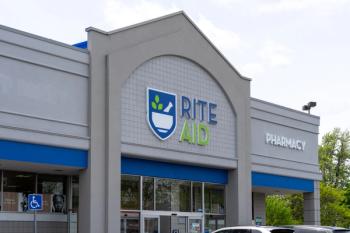
Pharmacists lead the charge in implementing advanced therapeutics, navigating complex challenges and shaping the future of health care innovation.

Pharmacists lead the charge in implementing advanced therapeutics, navigating complex challenges and shaping the future of health care innovation.

Ambulatory pharmacists innovate care delivery, enhancing patient access and outcomes through home visits and harm reduction clinics for complex health needs.

Integrating specialty pharmacists into neurology teams enhances patient care, medication management, and clinical outcomes for chronic conditions.

Innovative pain management strategies emerge as experts advocate for personalized, multifaceted approaches to chronic pain, likening treatment to a tailored cupcake.

Ralph Riello, PharmD, BCPS, a board-certified clinical pharmacy specialist at the Yale University School of Medicine, discusses challenges in implementation for novel cardiovascular treatments and interventions.

Gurjyot K. Doshi, MD, discusses key updates to medically integrated pharmacy standards, which reflect the evolving landscape of oral oncolytic therapy.

FDA approves acoltremon ophthalmic solution, a groundbreaking treatment for dry eye disease, enhancing natural tear production and patient quality of life.

Host Craig Beavers speaks with Orly Vardeny, PharmD, MS, a professor of medicine at the University of Minnesota

The seasonal surge in skin irritations underscores the ongoing need for effective and convenient remedies.

This new generic will impact both oncology and community pharmacists.



PharmStart empowers pharmacy technicians to pursue their education with tuition-free prerequisites, addressing barriers to entering pharmacy school.


An insider expressed skepticism about the company’s future, indicating that Rite Aid may be looking to close up shop entirely.

A recent study reveals a significant number of patients with psychiatric histories experience emergency visits after starting glucagon-like peptide-1 (GLP-1) medications, raising safety concerns.

New trials reveal xanomeline and trospium effectively alleviate schizophrenia symptoms, offering a novel treatment option with minimal adverse effects.

New research highlights the need for evidence-based buspirone use in psychiatric settings, revealing high off-label prescriptions and suboptimal dosing practices.

Research reveals a significant link between maternal anemia and increased risk of congenital heart defects in infants, highlighting the need for effective prevention strategies.

New trial results highlight intravenous immunoglobulin (IVIG) 10% as an effective rescue treatment for relapsing chronic inflammatory demyelinating polyradiculoneuropathy (CIDP), enhancing patient care and pharmacist involvement in management.

The American Lung Association is raising awareness about updated pneumococcal vaccine guidelines, emphasizing prevention and patient education for at-risk populations.

Experts provide guidance on managing high cholesterol in adults older than 75 years, emphasizing personalized care and shared decision-making for optimal outcomes.

Research reveals that children face significant long-term health risks, including kidney, gastrointestinal, and cardiovascular issues, after COVID-19 infection.

FDA approves Zevaskyn, the first gene therapy for RDEB, offering hope for effective wound healing and pain relief in patients.

New research reveals how high blood sugar from type 2 diabetes alters brain function, mimicking early Alzheimer symptoms and impacting memory.

Ronna Hauser, PharmD, senior vice president of policy and pharmacy affairs at NCPA, discussed concerns the association has with the implementation of the Medicare Drug Price Negotiation Plan.

Host Craig Beavers spoke with Arthur Allen, PharmD, for the latest updates from the RIVAWAR trial and the newest ACS guidelines.

Ronna Hauser, PharmD, senior vice president of policy and pharmacy affairs at NCPA, discusses concerns about the implementation of the MDPNP.

These data provide compelling evidence to revise existing transfusion protocols, recommending 4F-PCC as the preferred treatment for hemostatic management in cardiac surgery.

Data show that the system is also the most accurate continuous glucose monitor (CGM).